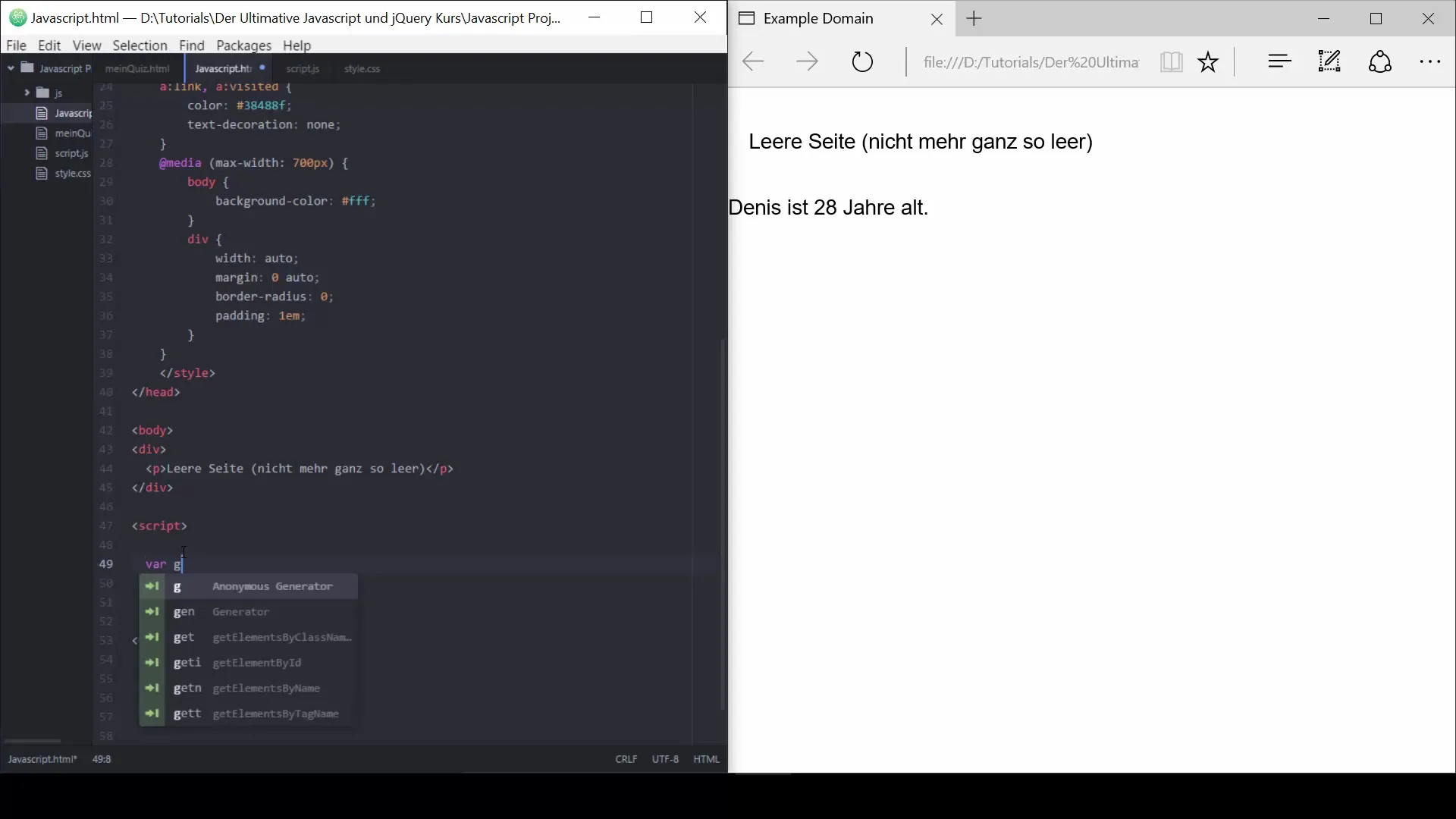Mathematical and assignment operators are cornerstones of programming with JavaScript. They allow you to perform calculations and quickly assign values to variables. In this guide, we will delve into the various mathematical operators, explain the modulo operator, and show how assignment operators can be used efficiently.
Key Insights
- Mathematical operators such as addition, subtraction, multiplication, and division are fundamental to programming.
- The modulo operator returns the remainder of a division and is useful for calculations like determining leap years.
- Assignment operators provide ways for quick variable assignment and modification in one step.
Understanding Mathematical Operators
Let's start with the basic mathematical operators used in JavaScript. With these operators, you can perform simple calculations. First, create a variable that we will call "Result".

You can then perform simple mathematical operations like addition. For example, you could set “Result = 5 + 3”. This results in a sum of 8.
The subtraction operator works just as intuitively. Here’s an example: Set “Result = 3 - 5”. This leads to a result of -2, since we subtract 5 from 3.
In addition to important elementary operations, you also have the ability to multiply. For instance, you can say “Result = 3 * 5”, which gives you the result of 15.
An interesting operator is the modulo operator, which returns the remainder of a division. For example, if you write “Result = 3 % 5”, you will receive a result of 3, as 3 is not divisible by 5.
With the modulo operator, you can find out how many days a year has, which is particularly useful for leap years. Let’s say you want to examine the year 2000. Using the modulo operator, you can determine whether a year has leap years or not.
If the year is divisible by 4, you increase the value for “Days” to 366. Otherwise, it remains at 365.
A year that is divisible by 100 only has 366 days if it is also divisible by 400. Thus, the year 2000 had 366 days, while 1800 only had 365 days.
Assignment Operators
Now let’s turn to assignment operators. These allow you to change variable values in various ways without having to enter the variable name multiple times.
Suppose you have set a variable “Result” to the value of 3. If you now write “Result++”, the value will be increased by one before output.
This means that when the result is output, it first displays 4 and the next time 5.
Additionally, you can combine the assignment with another operator, for example, “Result += 5”. This increases the result by 5.
Note that this does not only apply to additions. You can also work with multiplication: “Result *= 2” doubles the value of Result.
It is useful to use assignment operators instead of the standard assignment, as you end up with less code and thus make your programs more readable.
Summary – Mathematical and Assignment Operators in JavaScript
In this guide, you learned how to perform basic mathematical operations in JavaScript, including using the modulo operator for specific calculations such as checking for leap years. The various assignment operators were also discussed, which help you use variable names more efficiently.
Frequently Asked Questions
How does the modulo operator work in JavaScript?The modulo operator returns the remainder of a division and is represented by the percentage sign %.
What is the difference between ++variable and variable++?++variable increases the value before use, while variable++ increases the value after use.
How do I use the assignment operator +=?The assignment operator += adds a specific value to an existing variable, for example, Result += 5 increases the value of Result by 5.
What are the basic mathematical operators in JavaScript?The basic mathematical operators are addition (+), subtraction (-), multiplication (*), and division (/).
Why do I need assignment operators?Assignment operators simplify the updating of variable values as they allow you to perform arithmetic and assignment in one step.


